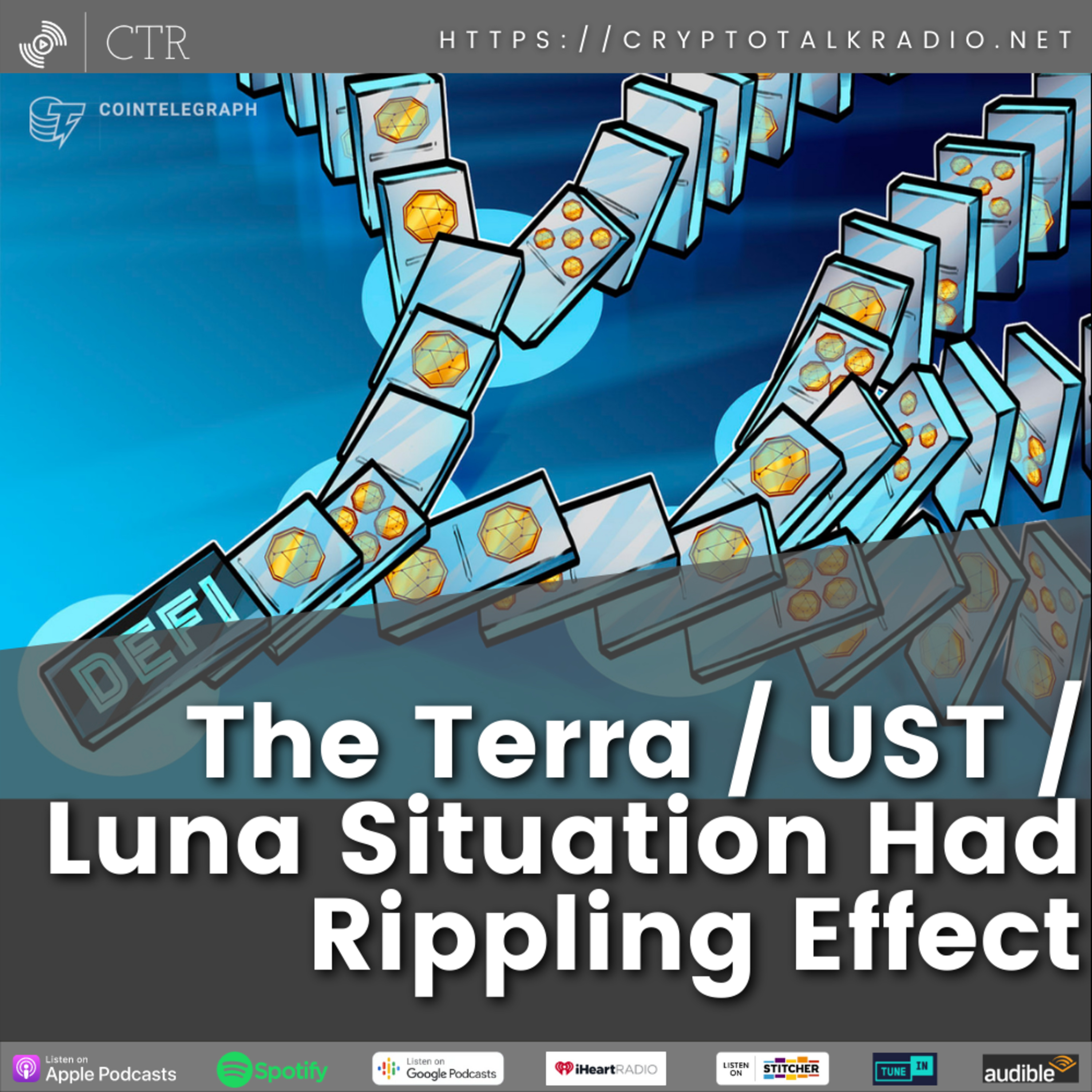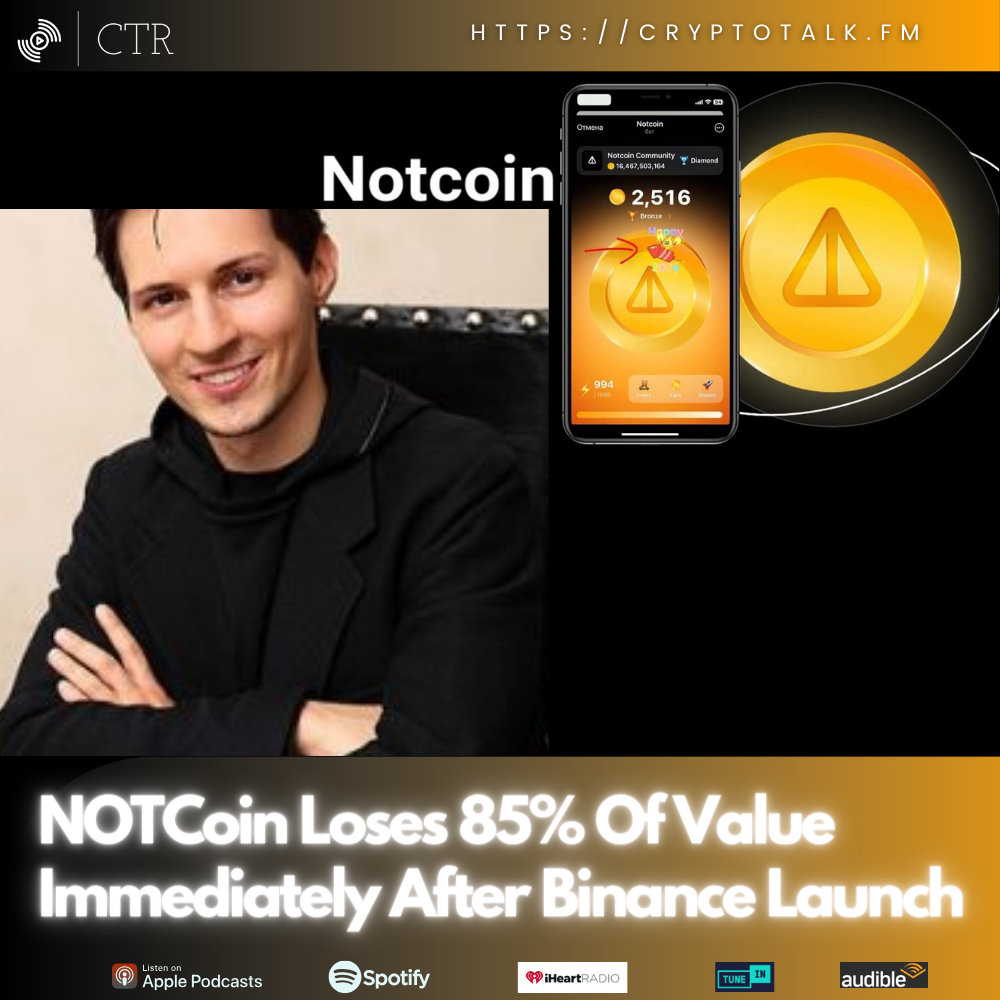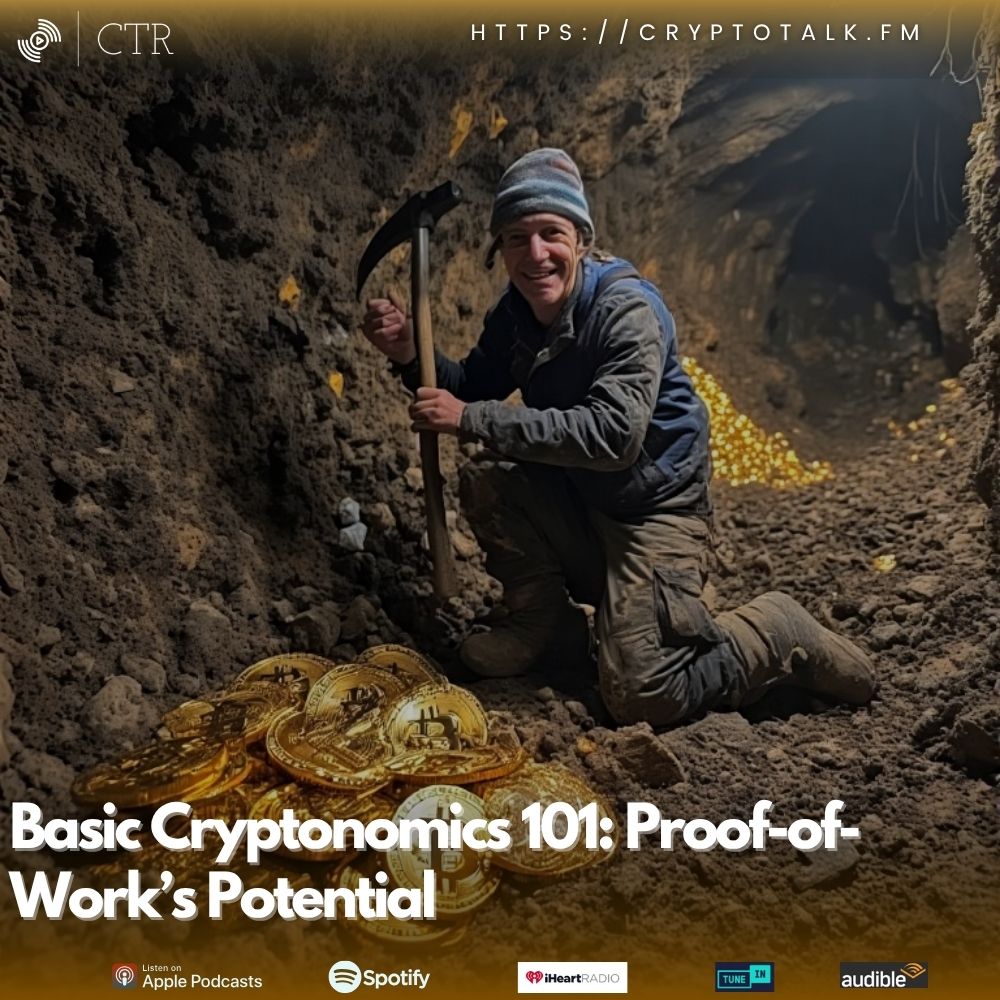Episode Transcript
[00:00:00] Out of cycle update.
[00:00:02] Is crypto just a giant Ponzi scheme? Cryptotalk Fm my name is Leister. I'm your host. Sorry for the delay, but I had to wrap my head. I had to refresh and then wrap my head around topic matter. And then, of course, I thought it was important to step back and reflect on the fiasco that was FTX because it contributes in some way to this topic that I see popping back up again, just, you know, within the last couple days from the highest levels of the banking again. And it seems to spike during points where there's a run up, then there's a crap out and there's a run up, there's a crap out and a run up, and the volatility seems to trigger this to come up again and again and again. And so I'm not. I am not saying that it is. I'm asking the question because these people seem to say that it is. And I figured it, because I've done this for other tokens, specifically other garbage out there. I figured this is like drip, right? I figured I would use this opportunity to lend my opinion to it. And it's simply my opinion, because perhaps I can dumb it down for some of you that can't follow the thread in my mind and has always done, and I challenge you to go online and search raw definition. I'm talking Merriam Webster's dictionary, Mw.com. Shout out to that, since you don't read books. I'm saying get the raw definition of a Ponzi scheme. Don't go off TikTok telling you what it is. Don't go off X or Twitter, whatever, telling you what it is. Go to a reputable source, not wikipedia, it's not reputable. Go to miriamwebster.com mw.com, which is the actual dictionary, and use that source. I'm going to try to translate it in my own words, though, when you have a Ponzi scheme, and the most notorious in my mind, in my era, example of that was Bernie Madoff, who died in prison.
[00:01:58] A Ponzi scheme, in my mind, is where you take money from people, right? And as part of whatever it is that you're doing, it doesn't matter what it is. And that's the contention here. It doesn't matter what it is. But you're taking money, you're doing something with it, something, whatever that is, and treating it like an investment. So, you know, let's say that you're doing some sort of side gig. You contact a bunch of people and you say, you know, give me $50,000 to get this off the ground.
[00:02:32] So you collect up 250 grand on this business, you tell them, I'll pay you back, plus, let's say 10%. So five grand each. So let's say that you were able to collect up from five people. So now you're on the hook for 25 grand to pay back. And you're confident that you can do this because of whatever it is that you created, whatever this side gig is. Let's say that you're successful upfront. Let's say that it's something that looks viable. I'll give you a good example. In the olden days, you could actually spin up a video game business pretty easy. You would contact the wholesaler and they were all over the place. The wholesaler is where your gamestops and best buys of the world get their inventory from. The game manufacturers, distribute to the wholesalers. So you make a contract with the wholesaler and you say, I want. There's two ways to do it. You either say, ship to my customer as orders come in, or you have stock on hand, but you feel like you can make this video game business work and you just need the upfront investment capital to start it up. And then the profits you can anticipate are going to help you pay these people back. This 25 grand that you owe.
[00:03:47] Now, here's where it starts to hit a gray line. In most cases, whatever it is that you're thinking of doing again might be successful upfront, and you could have something that you can anticipate and it might make you profitable at first.
[00:04:04] What happens with people is they either misrepresent the returns or they underestimate the returns, or they don't anticipate the market correctly, or the market shifts due to factors outside of their control. Like it's. It's something that's going to disrupt what should otherwise work. And I'm speaking from direct experience, that's why I'm so clear about it, because something similar happened to me in a distant past.
[00:04:31] But ultimately, whatever you're thinking might sound good, but it's ultimately going to be a wash, it's going to be a flap out. So you're running this gig, right, your video game business, and you're selling because you had all sorts of popularity. Well, if you know video games, and it's not even about digital, because physical is making a comeback, it's not even about that. It's just that ultimately it's going to come a point of saturation, you know, people aren't buying because they don't want it, or could be inflation related, could be tax something. Something's happening where you're not getting the same flow that you expect. Could be your wholesaler craps out, something happens where you need more capital injected in it to kind of keep it going. And so you, let's say you were able to pay back the first 25 grand. So you're, you're flat as far as you're concerned, and now you're generating a little bit of profit. You write up your books to show, hey, look, I'm making money, you know, hand over fist on this business. Now you use this to approach more people, and you say, okay, I started the business because this is part of your business plan, right? I started the business with funds from friends, and now we're solvent, it's referred to, and now I've got money flowing in. It's a profitable business. And here's the returns. And you can put a percentage because you can use actuals. And this is enticing now to more investors because they see that you're a running solvent business. And it helps if you've been running for a couple of years. So this usually takes time to do this, and you entice more people to give you money. Where it starts to be Ponzi is where the money that you're showing that you're making is not directly off of independent profit, as in some of that money is off of liquidity that you gained from a prior ask. So somebody else paid you the 25 grand, or whatever it was, to help keep it going. And you added that to your books as money on hand because that's one of the factors you have to share.
[00:06:36] And you get injection of more money from other investors. And let's say this first one was 25, this next one's 100 grand. And you use some of the money from that 100 grand to pay back the 25. And now repeat that cycle. You're continuously going out because you see it's an easy liquidity flow. You're continuously going out to find more investors.
[00:06:59] Maybe you are selling, maybe you are transacting, maybe you are getting something. But when you talk about the returns, if the returns are coming from money that you got from somebody else, that's where it starts to be a Ponzi scheme. It's not from your true profits. Your true profits enabled you to get to the point that you can do these things, but where you're paying people back is directly out of money that you're getting from other people. And it gets to the point that your business is not self sustaining. The only way you can sustain operations is to find more people to help fund it and keep it going. And it becomes a house of cards, where once that money stops flowing or somebody figures it out, you're going to be in hot water. So with cryptocurrency, now that I broke that down, what are we essentially doing? We have an asset that's out there, that's bought and sold, and the price is going to change. And you do have exit liquidity as a concept. The idea that somebody bought in at a certain price point that was high, the thing dips down, more people buy in because it dipped down, price goes back up. This person sells out that, are you exit liquidity? Essentially. So is it a Ponzi scheme? No, because everything is done by the choice. It's not like something or someone was at the top orchestrating this whole deal. It's people are on fair trade, buying and selling at whatever price made sense, and they may or may not profit, but that's the, it's their choice to go in and do these things. So it is fair to say that certain ones, like drip, arguably are ponzi schemes. Because there's a coordinated point at the top. Sure.
[00:08:39] Bitcoin, no, because there's no central point behind the business, Ethereum, you can make a case, and arguably, that lends strength to the argument from the SEC around Ethereum. But bitcoin, no, because again, there's no central point on top of the business. So that's my thoughts on it, is when you're evaluating whatever cryptocurrency you're going to get into about whether it's a ponzi, I can't. I can't agree with the idea that you broad stroke cryptocurrency as a Ponzi scheme, because it really depends on if there's somebody at the top pulling the strings, in my opinion, because the word scheme has to play in, well, who's the schemer? If there's no schemer and it's fair trade, and everybody decides what price they're going to buy and sell at, that's a different situation. You could make a case that the central exchanges are governing price to some degree as market makers, and that's fair, but it's still fair trade. Somebody would have to choose to buy and somebody have to choose to sell, and they, the exchanges could very well be influencing the price upward or downward to encourage, you know, buy and sell activity. We know that happens. So sure you can make a case on central exchanges at worst. Well, bitcoin right now, going to a central exchange is pretty much the de facto way to get into it. So unless it's gifted to you. Right. Or given to you. So that's something you need to think about, take into consideration. That's my thoughts on it. Feel free to let me know what you think. But I can't broad stroke it either. I understand where they're coming from, but I think it's a, it's a fine line. And we have to look at intent, malicious intent. We have to look at is it truly insolvent? As in, is it never going to recover? Is there singular people getting enriched? There's a case with bitcoin, right, because big players hold a lot of it. But at the end of the day, it's. It's free. Free trade. If somebody chooses to buy in a certain price point and it's available at that price point, that's free trade definition. So my thoughts. It's our share. It is what it is.


